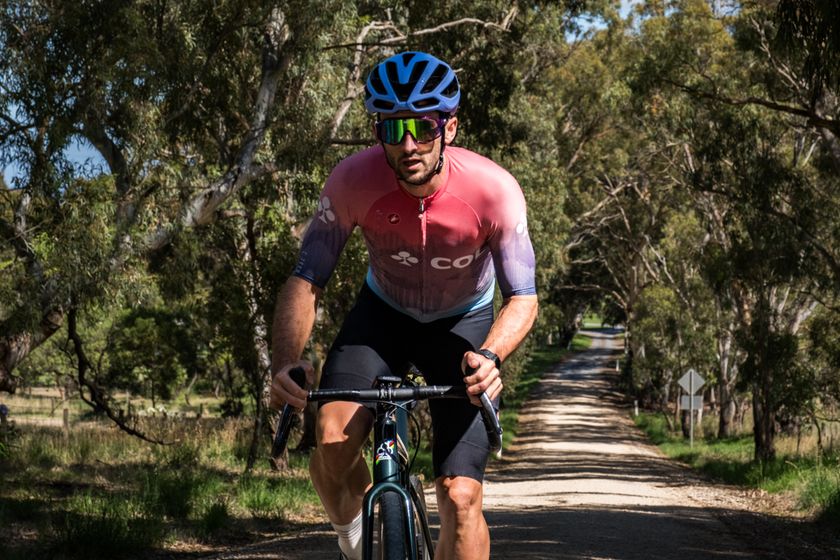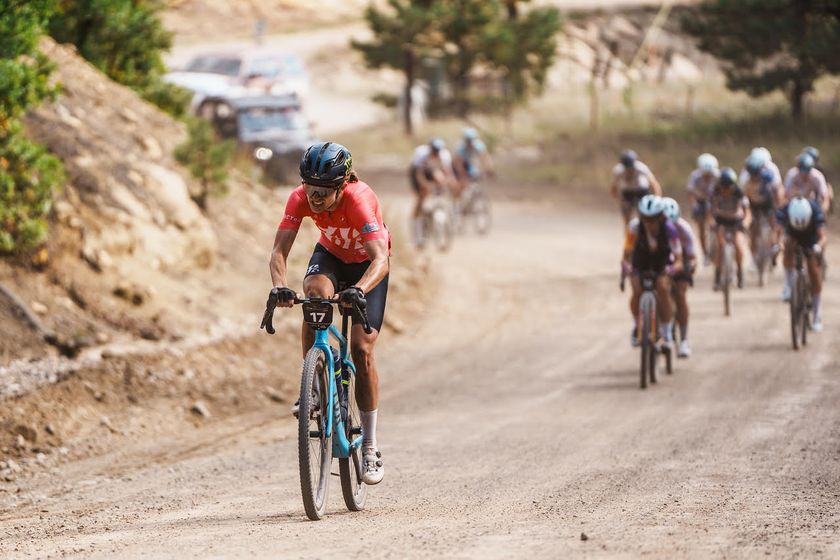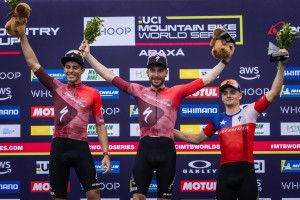For the record
(Editor's note: the following diary entry relates to the eighth stage of the Tour of Southland in...
November 12, 2005
(Editor's note: the following diary entry relates to the eighth stage of the Tour of Southland in New Zealand, held on November 11. On the 163.6 kilometre route from Winton to Te Anau, severe wind conditions saw the chief commissaire place a temporary halt on the race at 110km, restarting the race some 30k's from the finish. The point of contention relates to the preservation of a time gap in this critical phase of the race. At the time, a three-man breakaway (that contained eventual winner Gordon McCauley) was up the road and at one stage had over seven minutes on the field, but this had been quickly halved as the peloton decided to reel them in. At the re-start, the trio set off with this time gap unchanged, despite the belief by senior riders that the peloton would have taken more time out of their lead, and most likely caught them, had the race continued.)
Three days ago I marveled at the glass smooth lake waters, crystal clear skies and sharp profiles of young craggy mountains surrounding the Tour of Southland bicycle race. After two days of pure groveling, the sensations in the legs began to resemble normality, Glen was in yellow and I was now pulling hard on the front of the race with the up and coming Kiwi star I'd profiled for Cyclingnews, Peter Latham.
Pete and I were holding a break close even though we had Tim Gudsell patrolling it for us. Prior to the climb of Devil's Staircase on the "dead" coarse pavement typical of New Zealand rural roads, I got on the mike and told my team co-leader Greg Henderson: "I'm baaaaack!" Whether our Southland Times team won or lost this little tour, it was a great feeling to be here with my friends. At the summit we were still in yellow and Greg had turned himself inside out to hold onto third just behind a storming Jeremy Vennell. Like last year, the weather was perfect and from Crown Terrace the views breathtakingly beautiful. But gale force winds were on their way...
I've already described in a brief posting what happened on the stage to Te Anau. In summary, race judges ("commissaires") stripped away any chance the chasing teams had of defending our various positions in the classements.
Mr. Messenger's report quotes just one side of the issue, without interviewing the managers or riders of Calder Stewart, Subway, Rabobank, Southland Times, or anyone else who made the front group of 20 odd riders at the top of Blackmount.
In addition, it reported comments that I'd like to address:
1. Southland Times riders did not chase anyone down nor verbally abuse any riders. The one incident of peloton riders chasing down an attacker was a Calder Stewart rider and a couple others (but not Southland Times). In fact, some riders who were well and truly dropped on the mountain or earlier caught up to the protesting peloton and went right through it (check the results). They were not prevented by the peloton from doing so. That cost the Southland Times team (for example) second on teams GC, but most of us stuck together and paid about $500 out of our pockets to send a message about the lopsided ruling. The amazing thing is that had the officials conceded/compromised anything reasonable, even 1 minute, (to 3:37 for example at 25 km to go) then the race would have been at least "all on" to the finish.
2. Gordon was not out of reach until the officials drove us out of reach. That stage, like most long stages of a stage race, typically shifts to high gear at the mountain about two-thirds of the way through. Many riders in the peloton had no idea the officials were going to call the stage off because an announcement was not audible (if even made) in the high winds. A possible shortening of the stage could have been brought up in a managers' meeting prior to race start and strategies could have been adjusted for this possibility. When the officials didn't stop us although at least two riders were blown into the ditches in the first 80 kilometers, it was widely believed in the peloton that we would be completing the whole distance.
3. "Young said he would hate..." [from Stage 9 report] In fact his team riders agreed with the mutual decision in the peloton. It was the manager, Young, who did not. Had Mr. Messenger interviewed a couple MGXpower riders he may have had a different story to write.
4. "previous two top teams" [from Stage 9 report] The protest was organized in a nearly instant mutual decision by the top four teams (Subway and Rabobank also concurred).
5. Mr. Messenger says in his Stage 8 report that the break was at 3:42 at the restart but it was 4:37 (at least he mentions that it was coming down, if not in so many words). This difference is critical to understanding the chasing peloton's disappointment with the official decision for restart.
6. Mr. Messenger characterizes the break as having slogged their guts out while the peloton dawdled. This is patently unfair considering the time gap at the mountain indicates that over the three hours raced to that point the peloton had been also slogging at very close to the same speed all day too. In heavy crosswinds nobody was getting a free ride. All riders had a hard day in the wind, not just McCauley.
Although our 160 kilometer race plan was to challenge race leader Jeremy Venell that last (partially driven in vans) 55 kilometers, it was likely that Jeremy was on his way to taking out the overall yellow jersey for the 2005 Tour of Southland. So he was potentially the biggest loser here, denied his chance to win by the "officials". It would not have been necessary to bring McCauley all the way back. If our hard racing had been unsuccessful in catching Gordon, Jaarod and Chappy, then even a 90 second stage win to the break would have mostly preserved the overall status quo!
Cycling tactics are so complex that even the tour staff and volunteers don't really understand why so many riders did not want to accept the commissaires' decision yesterday. It was uncomfortable in the hotel pub as I ordered a beer after dinner. The race staff quit laughing about taking the offending racer's prizemoney away from them as I walked in.
On the final day, we awoke to articles in the Southland Times that made no mention of the fact the chase had taken three minutes out of the tired breakaway, and that we were given an impossible task by the officials who wouldn't acknowledge the changing situation at the time they stopped the race. Just to fire us up some more, it was insinuated that senior riders were responsible for the protest and that riders who wanted to race were denied the chance to race by peer pressure from those senior riders. Hello, wake up to the fact that at the time of the stoppage the front group was down to under twenty men and those not so senior gung-ho riders with nothing to lose by the official decision were OTB (out the back)!
Without the protest, these supposed ready-to-race riders would have been 45 minutes behind by the finish, if not outside the time limit. Thanks to the determination of our team and the sprinting prowess of one Mr. Henderson, Southland Times won both stages today. Another point made. I didn't get to try and take the KOM jersey back from Chappie because I had to give up my bike to Glen when he flatted during a hard crosswind gutter session (and then chase back to the bunch on his bike, which was like pedaling a BMX bike for me). All's well that ends well.
The Southland Tour controversy can be framed by an analogy from the world of rugby quite easily. Imagine for a moment that the All Blacks were down in the first half. They've come out of the locker rooms for the second half ready to make up some lost ground and their fans and supporters know they can do this because they have stamina and have done it often before. But wait! The officials have, with very little warning, told them to prepare for a 10 minute second half! The All Blacks question the decision but don't find out until later that the decision was made not on sporting grounds but because the TV producer had to cover an urgent weather notice and the Rugby officials didn't want to have the game run longer than the available TV time.
The crucial debated point is whether the riders knew officials were going to stop the stage at the summit of Blackmount. Organizer Bruce Ross should have called a team manager meeting before the stage start to discuss this possibility. He cannot expect riders to hear a shouted warning at the start line, not with diesel engines clattering away, motorbikes running, press camera interviews happening moments before the start, and above all the howling wind making his voice unintelligible. The fact is that only a few teams equipped with radios heard about a possible stop and that wasn't until 20 minutes before the mountain. Riders had no idea whether we would be restarted or the stage cancelled. Gordon McCauley saying that "we read the race right and the others didn't, too bad" is opportunistic at best.
Monday I have several job interviews in Palmerston North and the prospects are exciting. I'm also going to try and take a few days off my new job to do the Bay Crits in Australia in January. I'd be helping Henderson again in a tough race against top talent like Robbie McEwen. After that, the level of competition I undertake (or not) will depend on how much training I can do in my off hours. There are so many other things I'd like to do that training to be fit enough for racing will be pretty far down the list, I imagine. Such as...
Finally, I'm also launching a coaching business focusing on riders who want to learn how to race, not just how to train. I'm looking forward to sharing my experience in over two thousand races on five continents during the last nineteen years. Prospective clients only may email me on tacticalcoach@hotmail.com. All other comments are welcome at jlieswyn@cyclingnews.com.
Email John at jlieswyn@cyclingnews.com
Get The Leadout Newsletter
The latest race content, interviews, features, reviews and expert buying guides, direct to your inbox!


